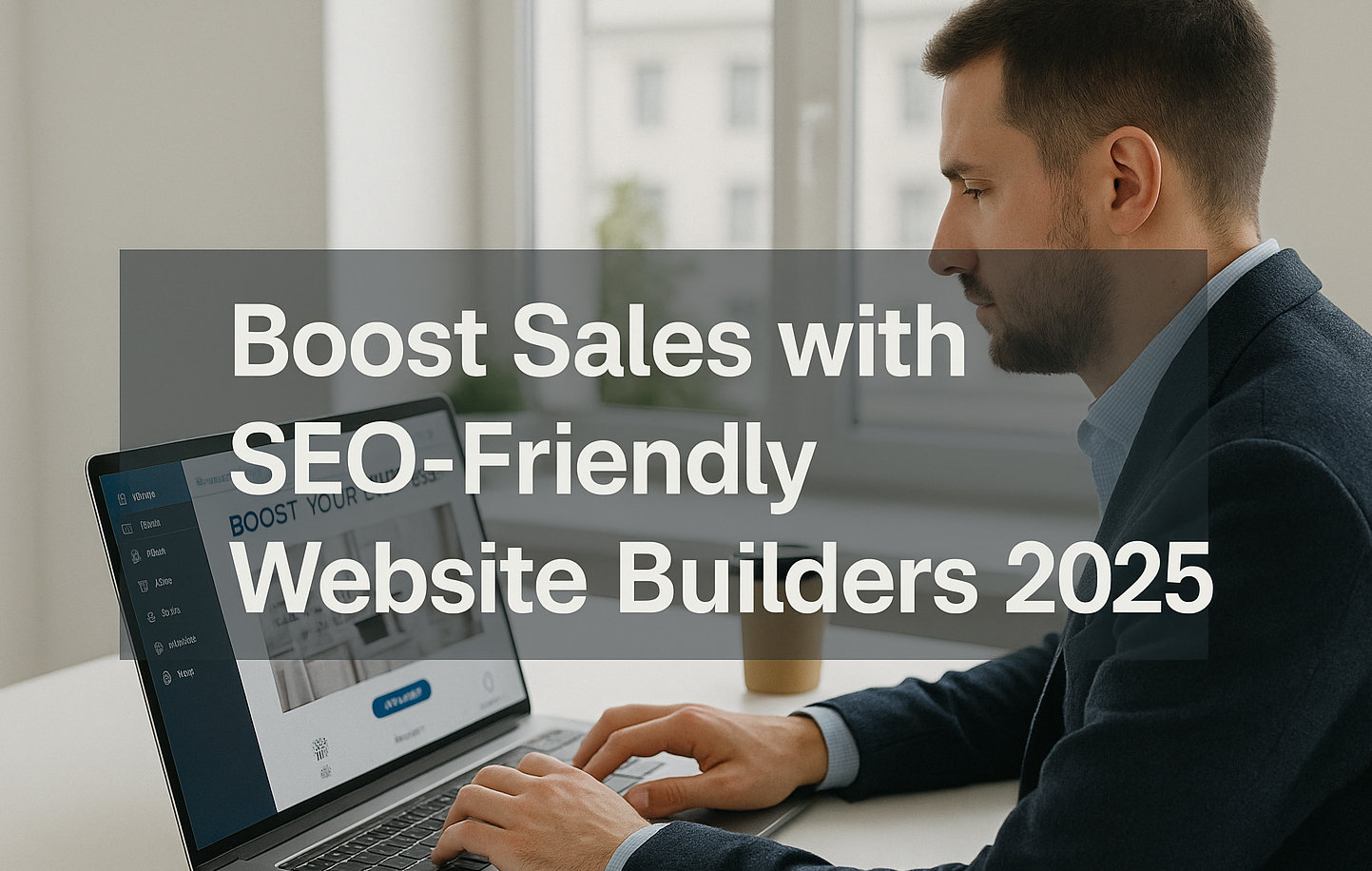 In the fast-paced digital world of 2025, businesses are increasingly relying on website builders that offer powerful features, seamless SEO optimization, and flexible customization. With the growing need for an online presence, choosing the right platform is crucial to achieving both visibility and functionality. An effectively developed website serves to engage users while maintaining a cohesive brand presence. For modern enterprises, having a site that is both attractive and search engine-friendly is essential to achieving digital success.
In the fast-paced digital world of 2025, businesses are increasingly relying on website builders that offer powerful features, seamless SEO optimization, and flexible customization. With the growing need for an online presence, choosing the right platform is crucial to achieving both visibility and functionality. An effectively developed website serves to engage users while maintaining a cohesive brand presence. For modern enterprises, having a site that is both attractive and search engine-friendly is essential to achieving digital success.
Core Elements of a High-Performing Website Builder
In today’s digital environment, it is essential for businesses to maintain websites that are both aesthetically refined and optimized for search engine visibility. Factors such as SEO optimization, mobile responsiveness, and customization options play a vital role. The right website builder should offer:
- User-friendly design interfaces
- High SEO potential with integrated tools
- E-commerce capabilities for online transactions
- Customization to match your brand identity
- Scalability to grow with your business needs
Top Website Builders for Business in 2025
As we delve deeper into the best website builders available in 2025, it’s essential to assess each platform’s strengths and weaknesses. Below, we break down the most prominent builders, focusing on SEO, E-Commerce, and Customization.
- Wix stands out for its ease of use, featuring a drag-and-drop design platform, integrated SEO tools, and a broad range of template options suitable for various industries. Wix is ideal for small businesses and offers straightforward e-commerce integration. Its SEO Wiz guides users through basic optimization, making it beginner-friendly. However, customization can be limited in free versions, and performance might lag for highly customized sites. Additionally, the lack of full control over code may hinder advanced SEO practices.
- Squarespace: Known for elegant templates and built-in SEO features. It’s ideal for creatives and small businesses looking for mobile-responsive designs. Squarespace excels in content management, making it popular among bloggers and portfolio sites. The platform’s integrated analytics helps track visitor engagement. However, the pricing can be on the higher side, and customization options are not as extensive as WordPress. Integrating third-party apps can also be more complex compared to other builders.
- WordPress: Highly customizable, especially with plugins like Yoast SEO. It’s versatile for blogs, portfolios, and large websites, but it has a steep learning curve and requires maintenance. WordPress is often favored for its open-source nature, allowing full control over code and customization. Its WooCommerce plugin makes it a top choice for e-commerce sites. However, managing hosting, security updates, and backups requires some technical expertise.
- Shopify: Best suited for e-commerce. It is specifically optimized for e-commerce, offering seamless integration with multiple payment gateways. Shopify’s App Store allows businesses to add features like abandoned cart recovery and multi-channel integration. Although it’s powerful for online sales, the monthly fees can be costly, especially for small businesses. Customizing themes beyond the standard options may also require developer support.
- Webflow: Great for professionals looking for creative freedom. It features advanced SEO options and visual design tools, but the higher learning curve can be challenging for beginners. Webflow’s CMS is highly capable, providing robust tools for managing and delivering dynamic content with ease. Designers appreciate its flexibility and clean code export. However, the platform’s cost can be prohibitive for small projects, and beginners may struggle with complex layouts.
Why Focus on SEO and E-Commerce
In 2025, having a visually appealing website is not enough. The key lies in making your site discoverable and user-friendly. Here’s why these factors matter:
- SEO: Helps your business appear on the first page of search results, driving more organic traffic. Aesthetic design alone is insufficient; in the absence of strong SEO practices, a website risks remaining unseen by prospective customers.
- E-Commerce: Enables businesses to directly sell products and services online, boosting revenue. With more consumers shopping online, integrating secure payment gateways and responsive product pages is essential.
- Customization: Ensures that the website aligns with your brand’s visual identity and functionality needs. Customization also enables businesses to stand out from competitors by creating unique user experiences.
Investing in the right website builder means more than just choosing a tool; it’s about finding a platform that aligns with your business goals. For instance, if your primary focus is online selling, platforms like Shopify or WooCommerce are ideal. On the other hand, if you need design flexibility, Webflow may be a better choice.
📌 Power Your Applications with Confidence
actsupport delivers expert Application Hosting Support tailored to your business needs-ensuring performance, availability, and 24/7 reliability.
Conclusion:
Choosing the best website builder in 2025 can significantly impact your business’s success. Focus on platforms that offer robust SEO capabilities, seamless e-commerce integration, and flexible customization. Platforms like Wix, Squarespace, WordPress, Shopify, and Webflow stand out as top choices. With the right builder, your website can become a powerful tool for attracting and converting visitors.
Ready to create a high-performing business website? Choose the right platform today and take the first step towards digital success! Understanding your business needs and target audience will guide you to the most suitable platform, ensuring your website not only looks great but also performs excellently in search rankings.Stay updated! Follow us on social media! Facebook, Twitter, LinkedIn
Check out our newest blog entry (Containers vs VMs: What’s the Right Choice?)
Subscribe to get free blog content to your Inbox




